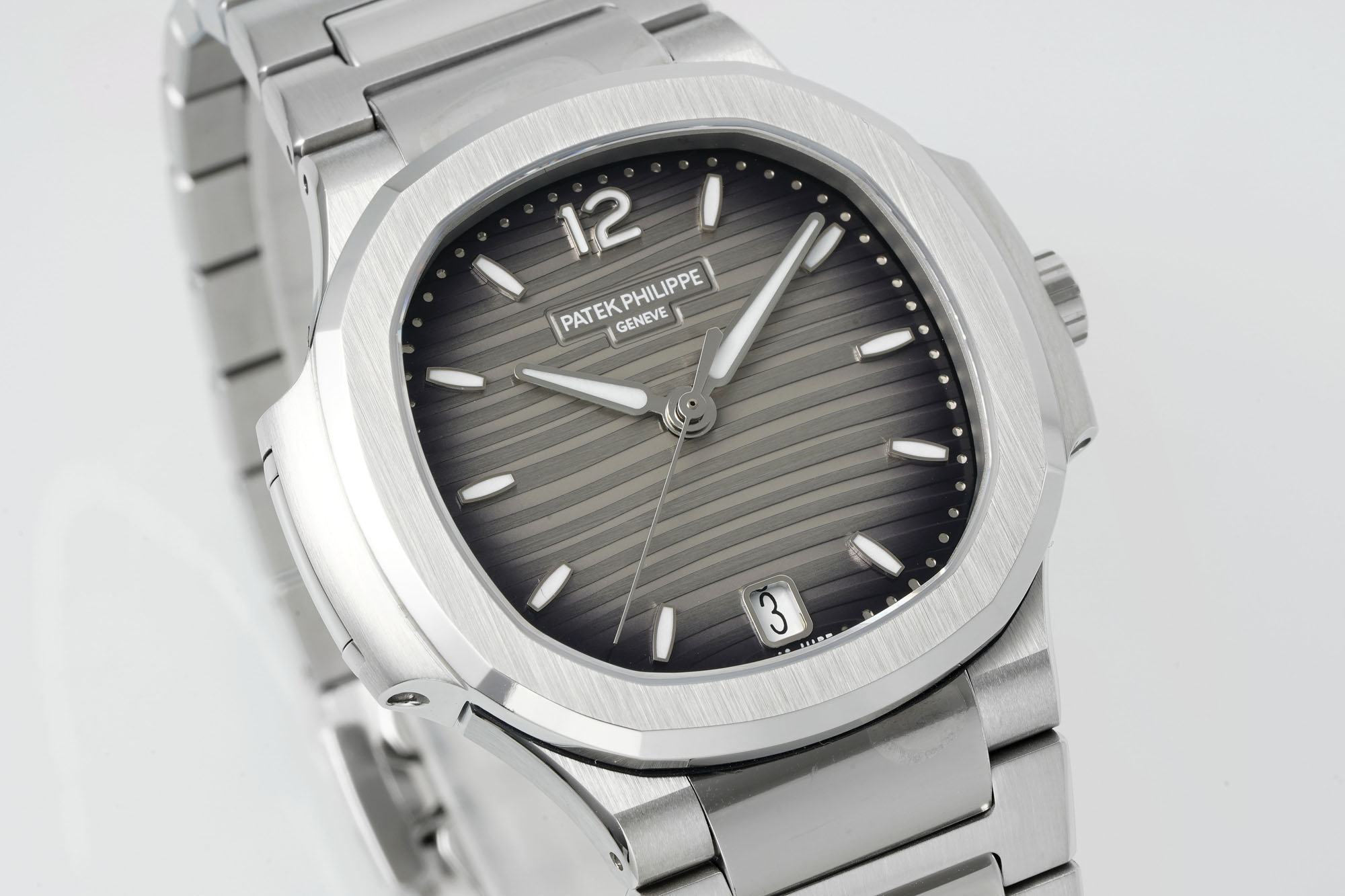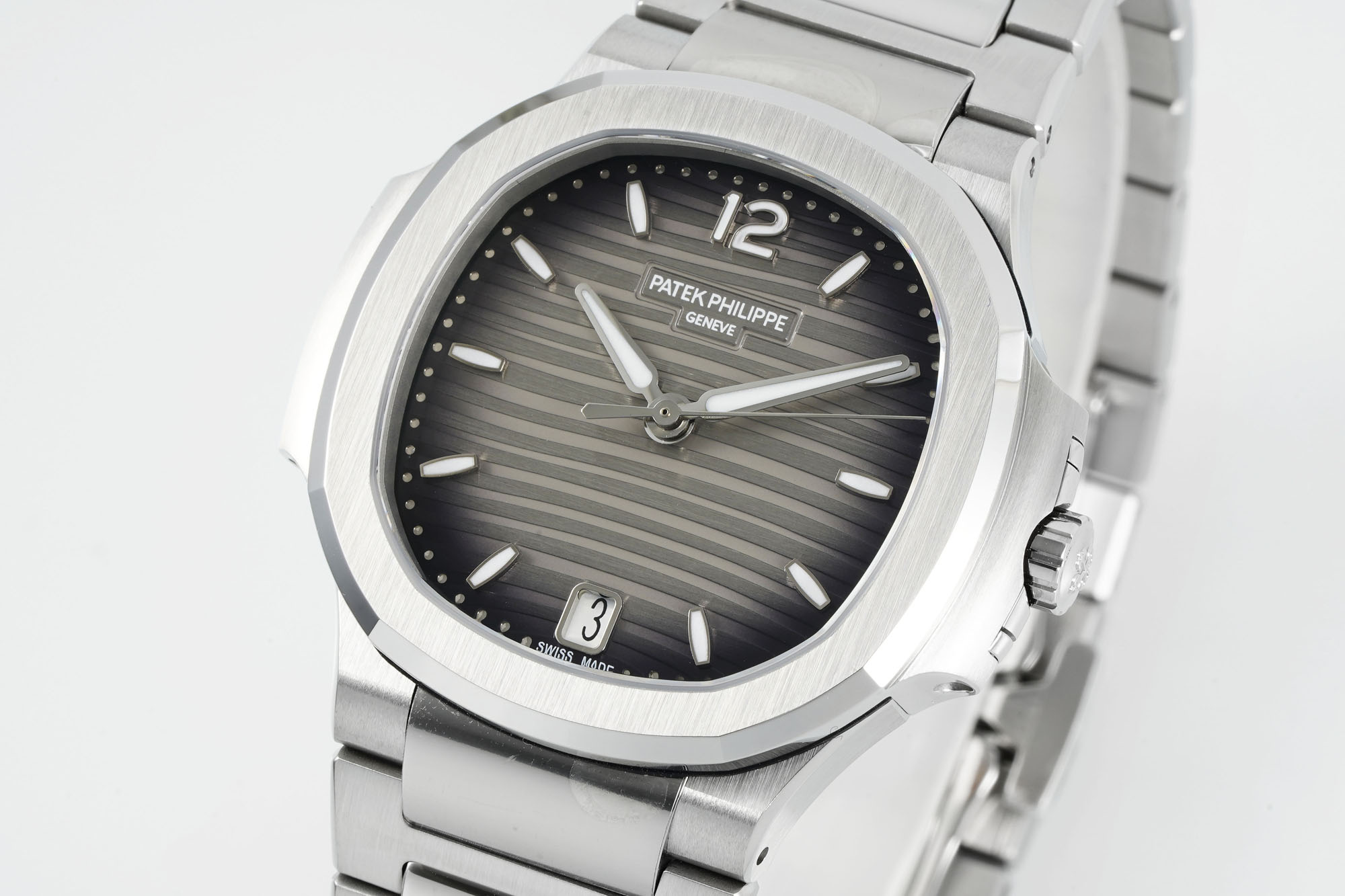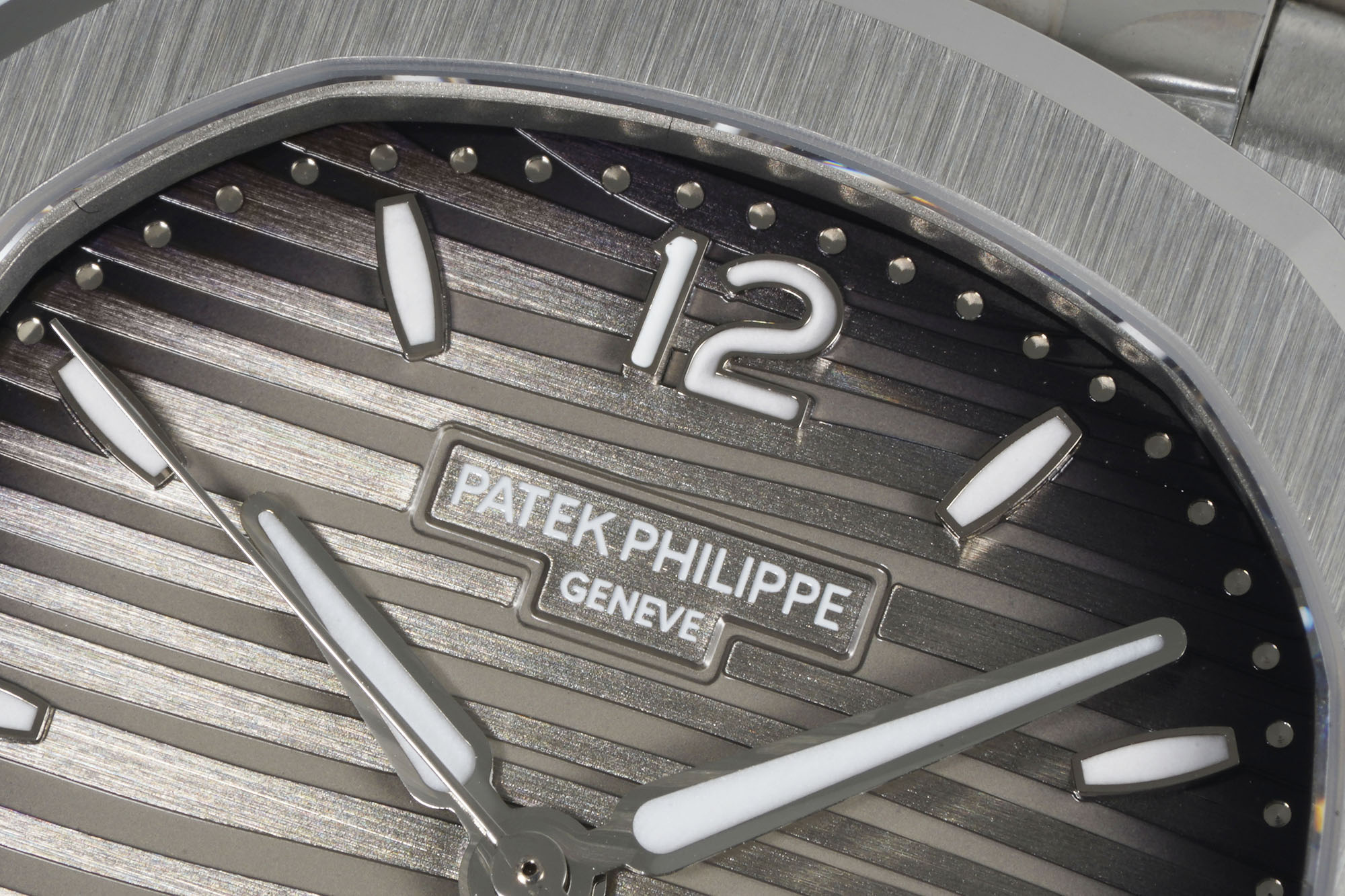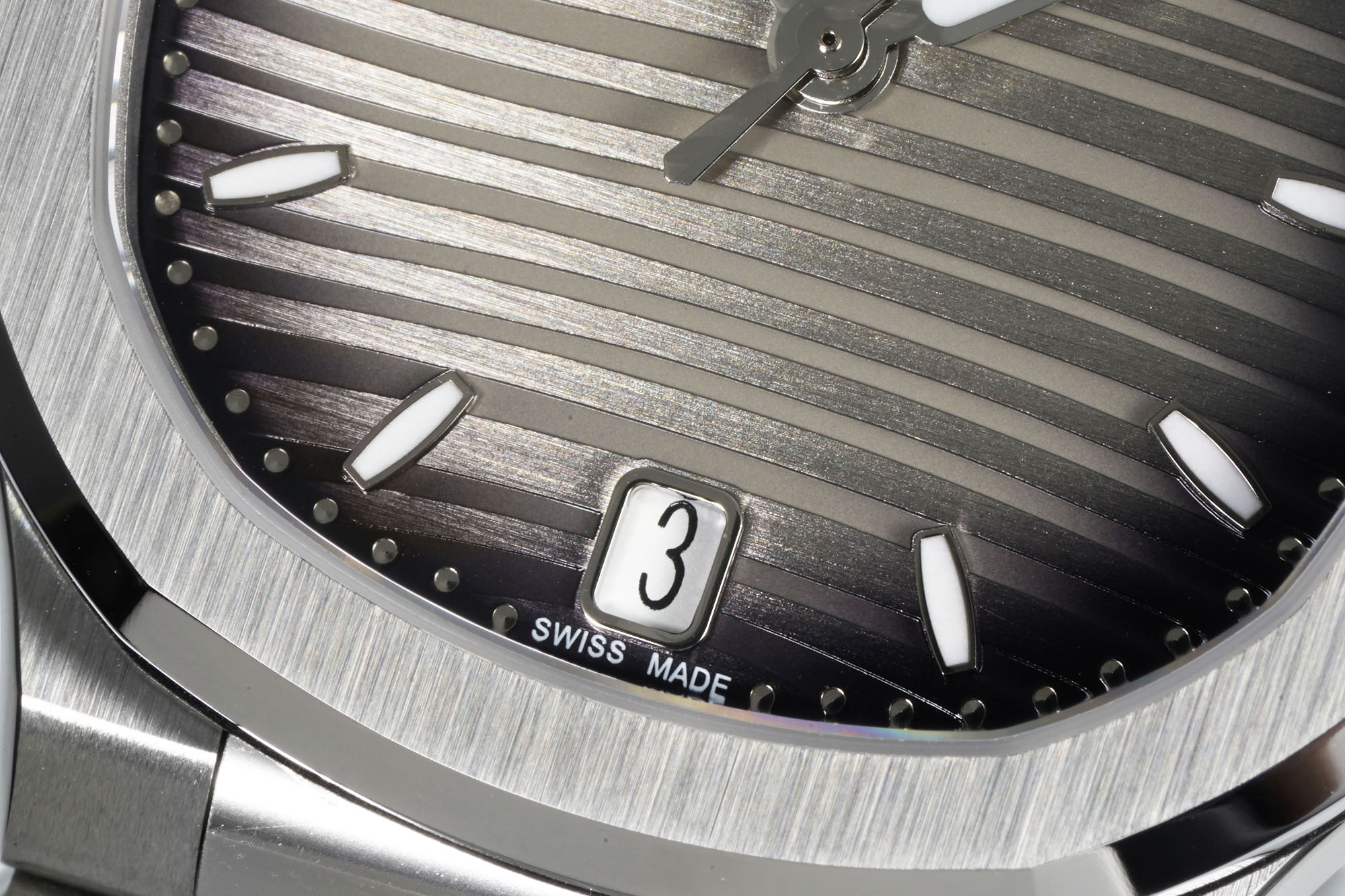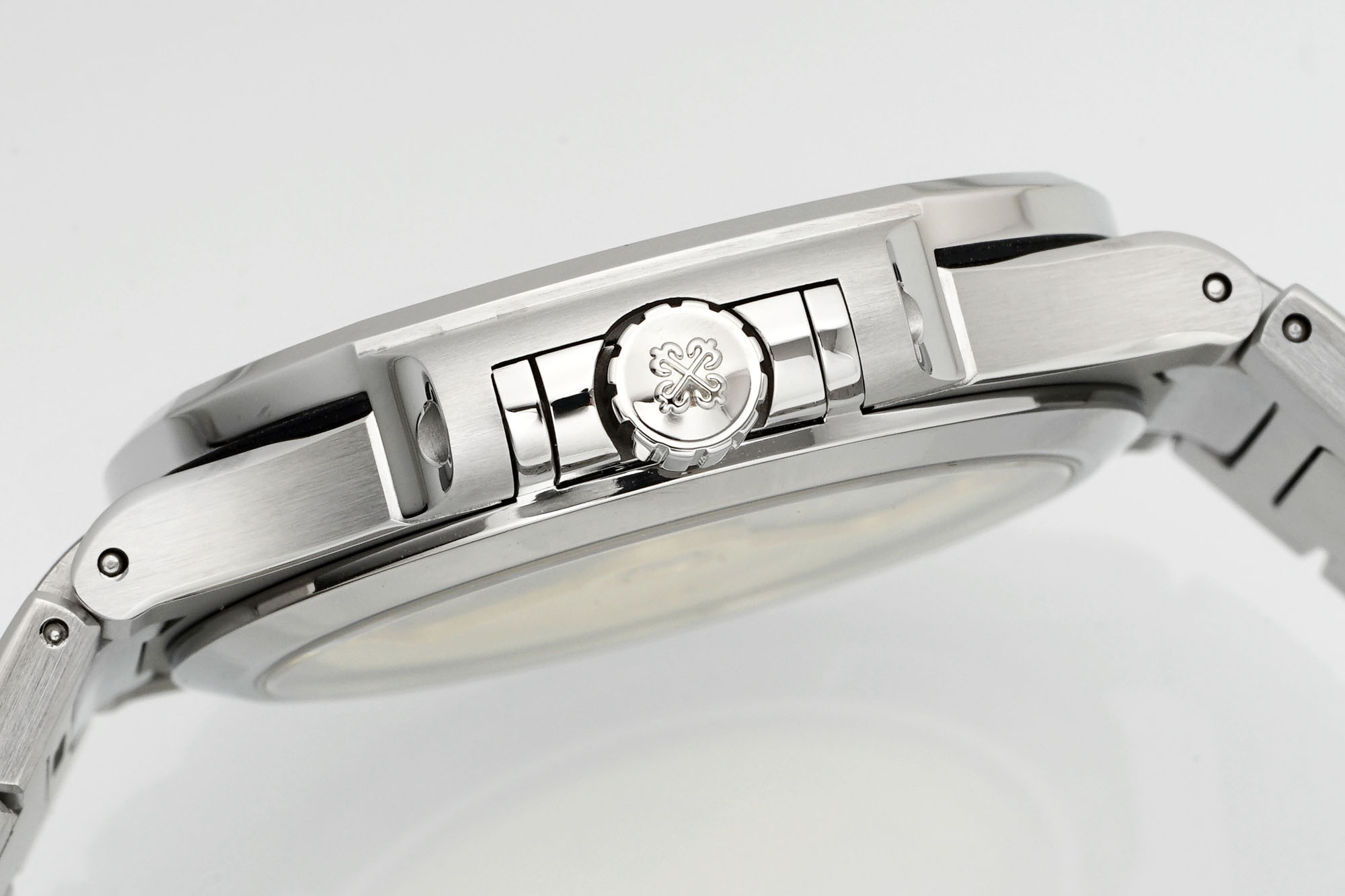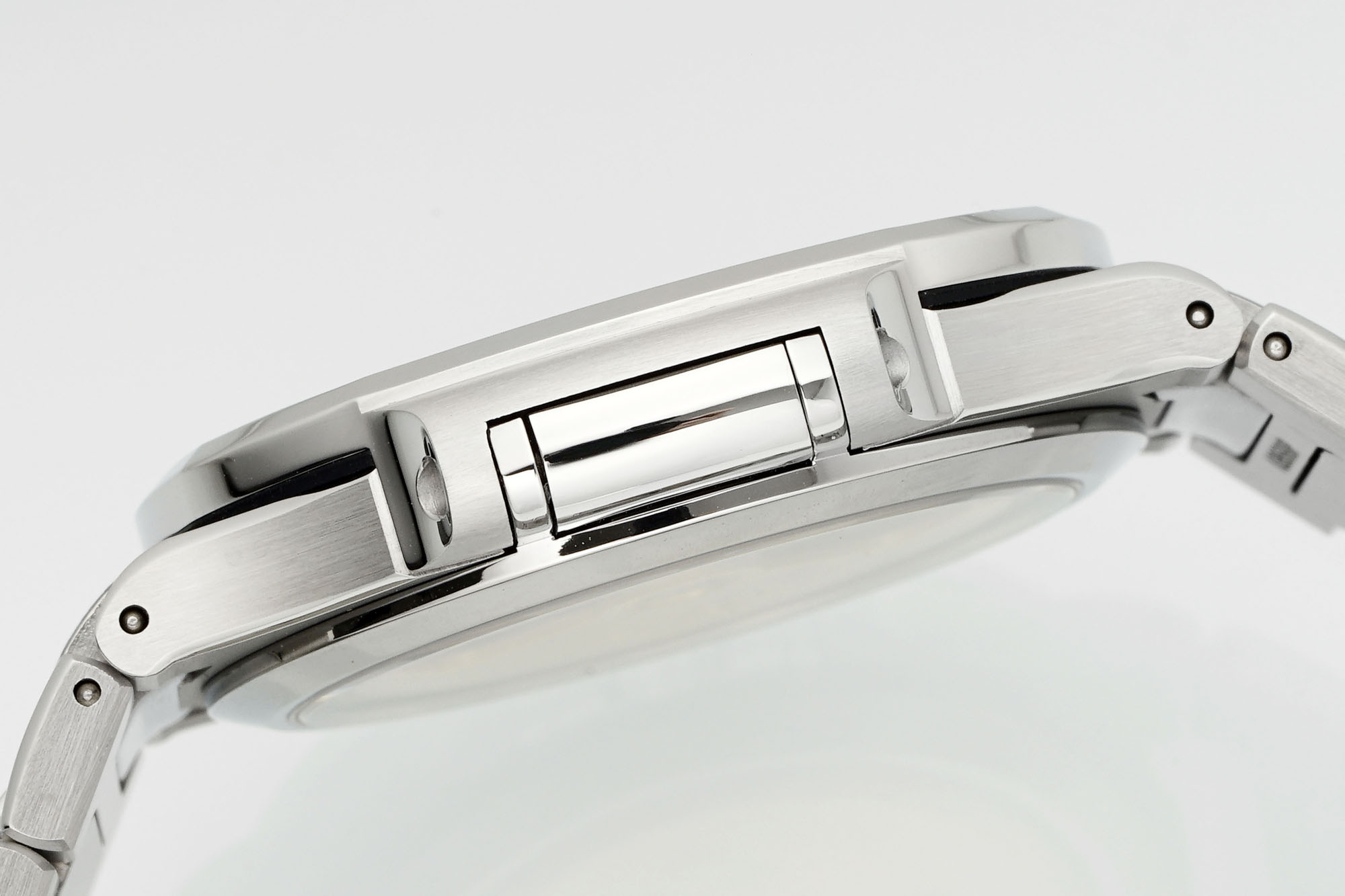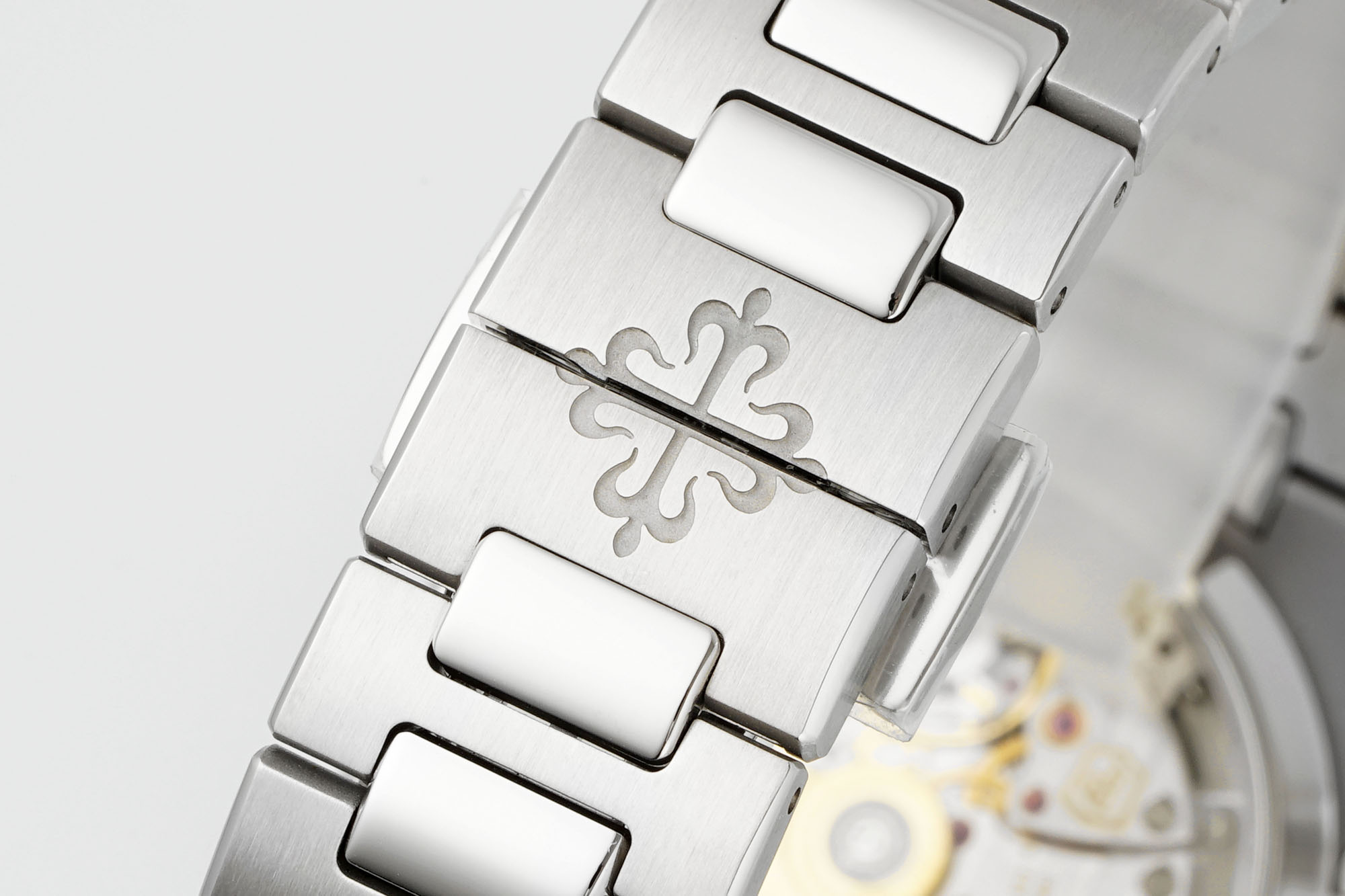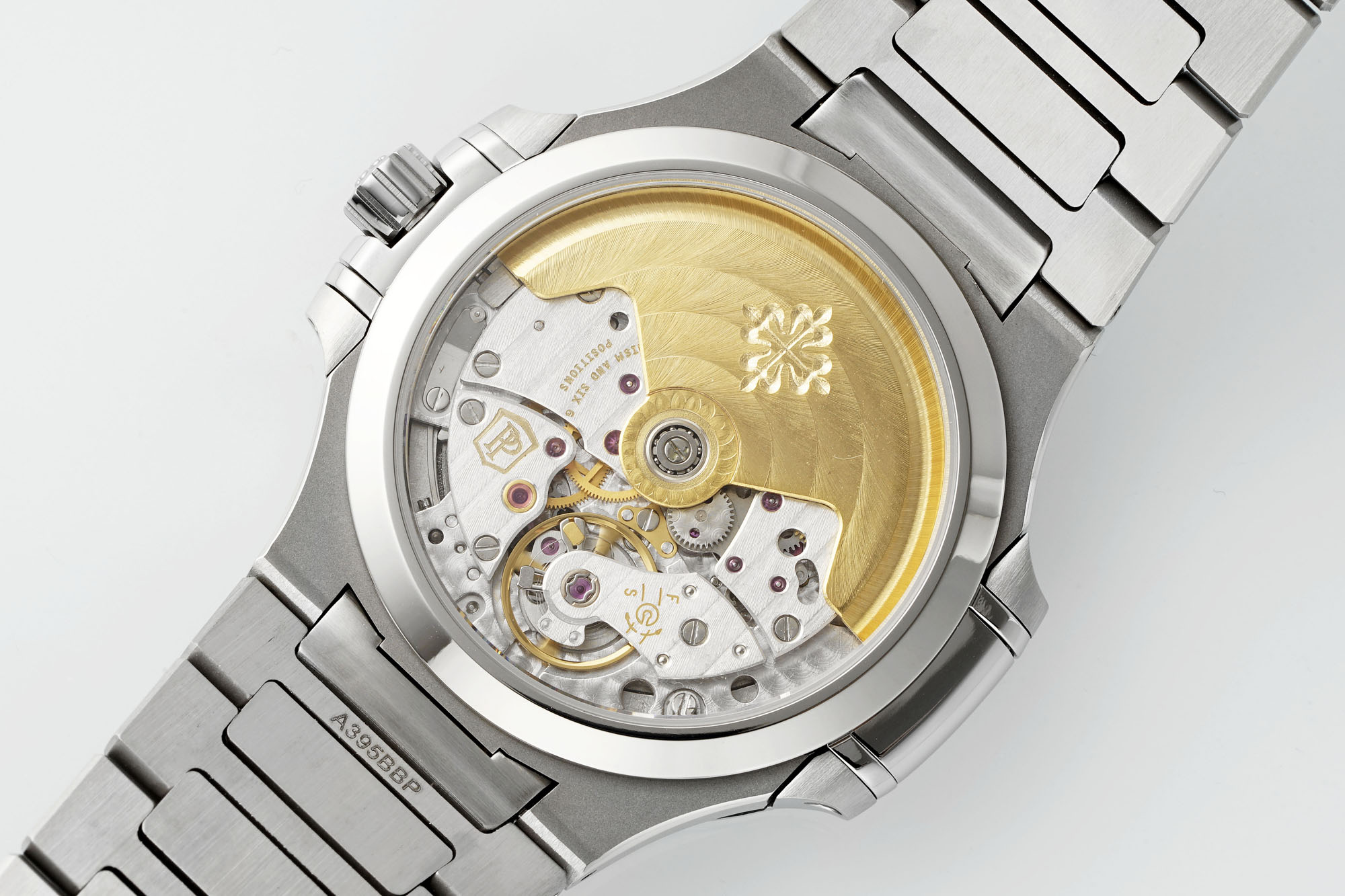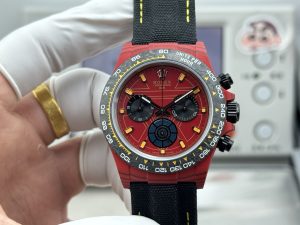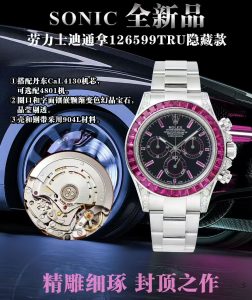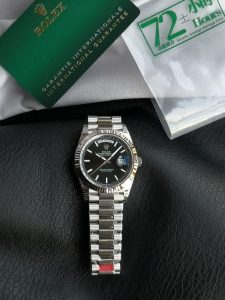In the high-stakes world of luxury timepieces, the Nautilus 7118 by Patek Philippe stands as a paragon of aesthetic refinement and technical mastery. While its original version captivates with its sophistication and precision, the DDF factory’s replica offers a fascinating proposition: can it capture the essence of the classic without the hefty price tag? This examination not only delves into the minutiae of its craftsmanship but also unpacks the broader economic, ethical, and psychological dimensions of choosing a replica.
Craftsmanship Meets Aesthetic Fidelity
The Nautilus 7118 replica by DDF is crafted to mirror the original in several significant ways. The dial, distinguished by its silvery waves on a white satin base, achieves an authentic look that reflects light in a captivating manner. This visual harmony is a testament to the meticulous attention to detail in replicating the dial’s brushed pattern, offering insights into the commitment of the replica industry to aesthetic precision.
The dial markers and their chamfered edges are reproduced with precise adherence to the original’s design, matching the size and luster of the genuine article. The very curvature of the watch’s lugs and the CNC-engraved beveled edges are executed to maintain an uninterrupted, smooth silhouette, aligning closely with the original Nautilus design.
Technical Precision and Mechanical Integrity
Turning to the watch’s mechanical heart, the customized 324 integrated movement by the Dandong factory presents itself as a three-bridge, intricately engraved mechanism. With a thickness of just 3.4mm, it mirrors the original’s engineering ingenuity. The tungsten steel rotor not only matches the weight of the original but ensures mechanical integrity, mitigated by a robust automatic winding system, preventing chain breakage and ensuring a steady power supply.
The Ethics and Economics of Replicas
The economic landscape around luxury watches is complex. While the Nautilus 7118’s original boasts exclusivity through its price point, the replica democratizes access—presenting a semblance of luxury at a fraction of the cost. This raises an intriguing ethical question: does the replica offer a deceptive allure, or does it provide a legitimate pathway to enjoy a high-quality aesthetic without contributing to the inflating bubble of luxury consumerism?
From an economic standpoint, the replica watch industry provides a competitive alternative, challenging the often inflated valuation of luxury watches. Data suggests that many luxury timepieces do not appreciate as reliably as some might expect, prompting consumers to question the true investment value of such purchases compared to more stable financial instruments like stocks or real estate.
Psychological Underpinnings and Personal Value
The psychological implications of choosing a replica over an authentic piece tap into broader narratives of self-worth and societal perception. The luxury market often links personal success to the ownership of authentic high-end products, a narrative that replicas subvert by allowing broader access to these symbols without the financial burden. This choice can reflect a conscious rejection of consumerist pressures in favor of personal financial prudence and individual style.
Ultimately, embracing the Nautilus 7118 replica is not merely a matter of budget. It is an exploration into the values one places on authenticity, exclusivity, and personal expression in luxury goods. As we analyze such replicas, the conversation expands beyond mere imitation, opening broader dialogues about accessibility, value, and identity in luxury timepieces.

